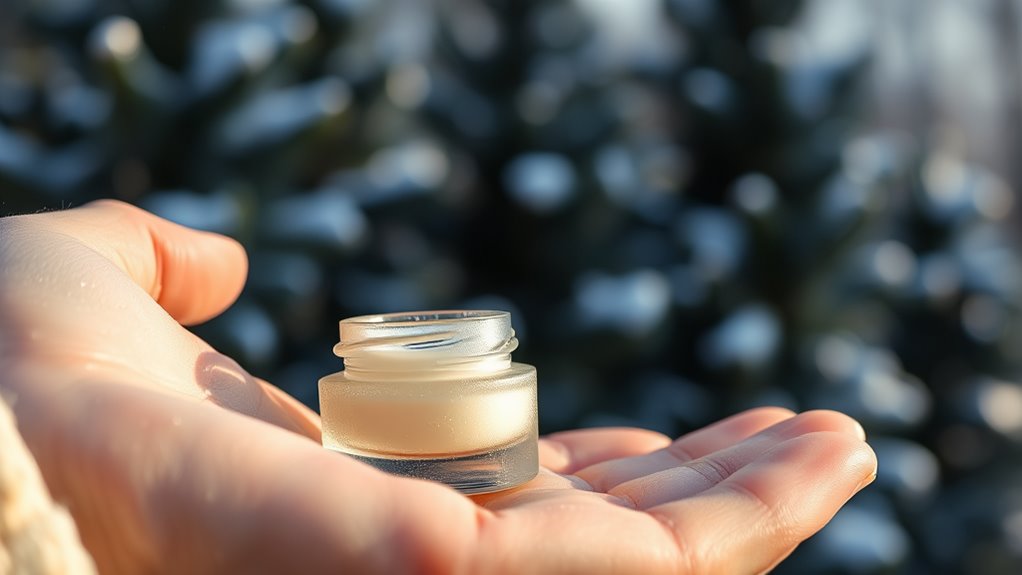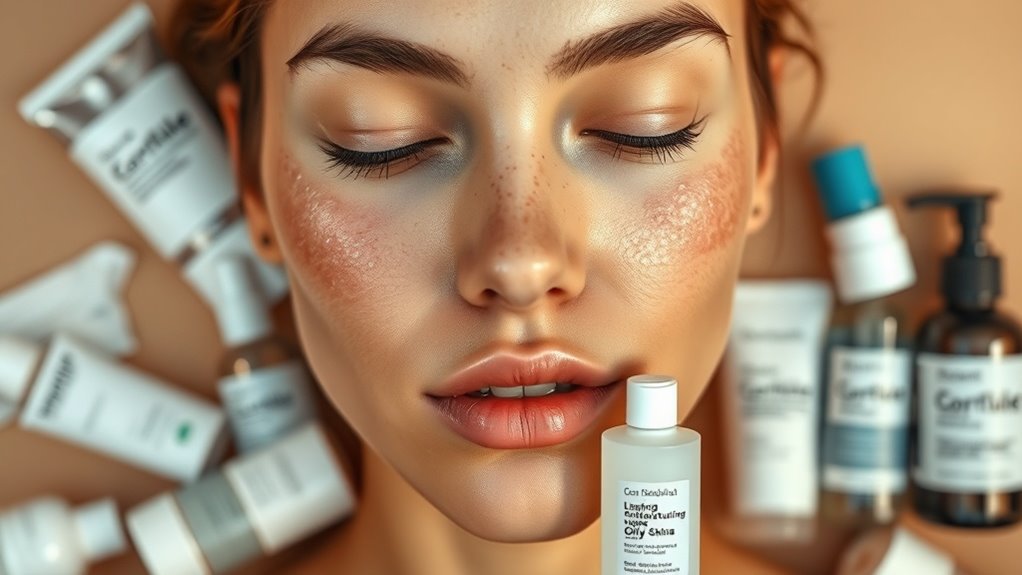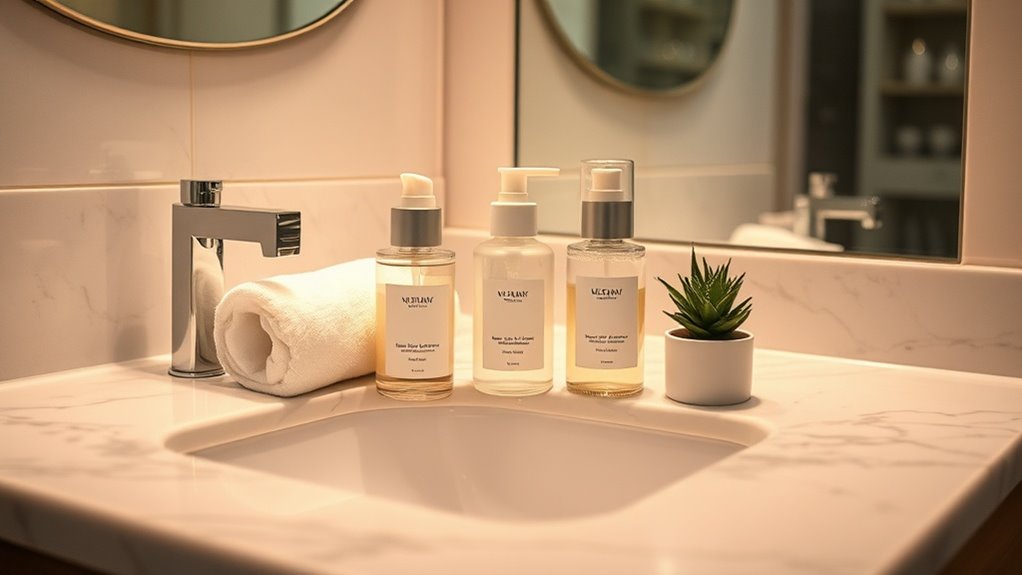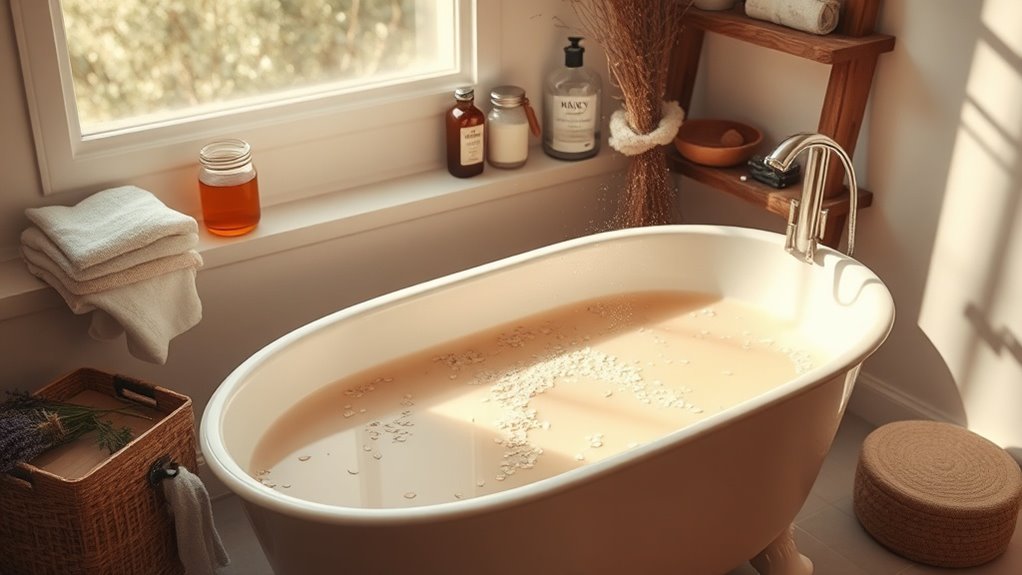The Cold Weather Skin Habit I Wish I Knew Sooner
In cold weather, your skin’s barrier can weaken, leading to dryness and irritation. You should prioritize hydration by drinking plenty of water and eating water-rich foods. Select a rich moisturizer with hyaluronic acid and glycerin to lock in moisture. Incorporate a humidifier to combat indoor dryness, and opt for gentle cleansing to maintain natural oils. Don’t forget to protect your skin with sunscreen and limit exposure to harsh elements. Discover more effective habits to enhance your winter skincare routine.
Understanding Cold Weather Effects on Skin
How does cold weather impact your skin?
Cold temperatures can lead to decreased moisture in the air, causing your skin to lose its natural hydration.
This results in dryness, irritation, and even cracks in the skin barrier. To combat these effects, use a rich moisturizer as a winter skincare tip. Opt for products containing ingredients like hyaluronic acid and glycerin, which help retain moisture. Additionally, consider using a humidifier indoors to maintain humidity levels, further protecting your skin. Maintaining a specific tip during winter months can significantly improve your skin’s health.
The Importance of Hydration
Cold weather’s impact on your skin underscores the need for proper hydration. When temperatures drop, moisture loss accelerates, leading to dryness and irritation. Staying hydrated helps maintain your skin’s barrier function and overall health. Additionally, ensuring adequate hydration can unlock radiant skin and serve as a powerful tool in enhancing your overall well-being.
| Hydration Benefits | Effect on Skin |
|---|---|
| Maintains elasticity | Reduces flakiness |
| Supports healing | Prevents cracking |
| Enhances radiance | Boosts complexion |
To combat cold weather effects, drink plenty of water and incorporate hydrating foods into your diet. Remember, your skin reflects internal hydration, so prioritize fluid intake for optimal skin health.
Choosing the Right Moisturizer
Selecting the right moisturizer is crucial for maintaining your skin’s health during cold weather.
To ensure optimal hydration and protection, consider these key factors:
- Ingredients: Look for humectants like glycerin and hyaluronic acid to draw moisture in.
- Emollients: Choose products with oils like jojoba or shea butter to seal in hydration.
- Consistency: Opt for thicker creams rather than lotions for better barrier support.
- Fragrance-free: Avoid fragrances that can irritate sensitive skin in harsh conditions.
Additionally, remember that the right moisturizer can significantly improve your skin’s overall resilience against the harsh winter elements.
The Role of Humidifiers
Have you considered the impact of indoor humidity on your skin during winter months?
When temperatures drop, indoor heating systems reduce humidity levels, leading to dry skin.
A humidifier can help counteract this by adding moisture to the air, which helps maintain your skin’s hydration levels.
Proper humidity reduces transepidermal water loss and enhances your skin’s barrier function.
Aim for a humidity level between 30% and 50% for optimal results.
Regularly monitor and maintain your humidifier to prevent mold growth and ensure effective performance. Additionally, maintaining proper humidity levels can significantly improve your skin’s overall texture and appearance, making it look more radiant and healthy.
Incorporating Nourishing Oils
Incorporating nourishing oils into your skincare routine is key.
Here are four oils to consider:
- Jojoba Oil: Mimics skin’s natural sebum, offering moisture without clogging pores.
- Argan Oil: Rich in vitamin E, it combats dryness and improves elasticity.
- Rosehip Oil: Packed with antioxidants, it promotes skin repair and reduces scars.
- Squalane: Lightweight and non-greasy, it locks in moisture and enhances skin barrier function.
Integrating these oils effectively will help combat winter dryness and maintain your skin’s health. Additionally, using oils can balance moisture levels in oily skin, preventing breakouts and enhancing overall skin health naturally.
The Benefits of Gentle Cleansing
Gentle cleansing is essential for your skin, especially in cold weather. It reduces skin irritation, helping to prevent redness and sensitivity. Additionally, using a gentle cleanser can help transform your skin overnight by removing impurities without stripping away essential moisture.
Reduces Skin Irritation
Why is gentle cleansing essential for maintaining skin health during cold weather?
Harsh cleansers can strip your skin’s natural oils, leading to irritation.
By opting for gentle cleansing, you can mitigate these effects.
Here are four benefits:
- Minimizes redness: Reduces inflammatory responses and calms irritated skin.
- Prevents dryness: Helps maintain your skin barrier, crucial in cold, dry air.
- Supports healing: Aids in the recovery of compromised skin, promoting overall health.
- Enhances comfort: Leaves your skin feeling soft and soothed, rather than tight or flaky.
Choose a gentle cleanser to keep irritation at bay this winter.
Maintains Moisture Balance
Maintaining moisture balance is crucial for healthy skin, especially during the harsh winter months. Gentle cleansing helps preserve your skin’s natural oils while removing dirt and impurities.
When you use harsh cleansers, you risk stripping essential moisture, leading to dryness and irritation. Opting for a mild, hydrating cleanser allows your skin to retain its moisture barrier, keeping it supple and protected.
Look for ingredients like glycerin or hyaluronic acid, which bind water to the skin.
Promotes Healthy Barrier
A healthy skin barrier is essential for protecting against environmental stressors, and gentle cleansing plays a vital role in maintaining this barrier.
By choosing a gentle cleanser, you can:
- Preserve natural oils, preventing dryness.
- Reduce irritation, minimizing redness and inflammation.
- Support skin’s pH balance, enhancing overall health.
- Promote cell regeneration, leading to a smoother texture.
Incorporating gentle cleansing into your routine not only safeguards your skin but also optimizes its function.
This simple habit can make a significant difference, especially in harsh weather conditions, ensuring your skin remains resilient and hydrated.
Adding Exfoliation to Your Routine
How can you effectively incorporate exfoliation into your cold weather skincare routine?
Start by selecting a gentle exfoliant, preferably a chemical one containing AHAs or BHAs, as they’re less abrasive than physical scrubs.
Aim to exfoliate 1-2 times a week to remove dead skin cells without disrupting your skin barrier.
Apply it after cleansing, allowing it to sit for the recommended time before rinsing.
Follow up with a hydrating serum and moisturizer to lock in moisture.
Monitor your skin’s response; if irritation occurs, reduce frequency or switch products.
Consistent exfoliation can enhance skin texture and radiance during colder months. Additionally, incorporating essential products like hydrating serums can further promote a healthy and smooth complexion.
Protecting Your Skin From Harsh Elements
To protect your skin from harsh elements, you need to prioritize daily moisturization, as it creates a barrier against dryness. Additionally, layering your clothing wisely helps trap heat and shield your skin from cold air. Finally, don’t forget to hydrate internally; proper hydration supports your skin’s overall health and resilience. To further enhance your skin’s protection, consider incorporating winter haircare strategies that also address dryness and damage during cold weather.
Moisturize Daily
Regularly moisturizing your skin is essential for protecting it from harsh winter elements.
Daily hydration helps maintain your skin’s barrier and prevents moisture loss.
Follow these steps for effective moisturizing:
- Choose the Right Product: Opt for creams or ointments with ingredients like glycerin and hyaluronic acid.
- Apply After Showering: Lock in moisture by applying your moisturizer on damp skin.
- Focus on Key Areas: Pay extra attention to dry spots like elbows, knees, and hands.
- Reapply Throughout the Day: Keep a travel-sized moisturizer handy for quick touch-ups as needed.
Implement these practices for healthier skin this winter.
Layer Clothing Wisely
Layering clothing wisely is crucial for protecting your skin from harsh winter elements. By using the right materials and layering techniques, you can effectively shield your skin from cold, wind, and moisture. Here’s a quick guide on how to layer effectively:
| Layer Type | Material Suggestions | Purpose |
|---|---|---|
| Base Layer | Merino wool, polyester | Moisture-wicking |
| Insulating Layer | Fleece, down | Heat retention |
| Outer Layer | Waterproof shell | Wind and moisture barrier |
Choose your layers carefully to maintain skin health during cold weather. Proper layering can prevent dryness and irritation.
Hydrate Internally
While you may focus on external protection against cold weather, hydrating internally is equally crucial for maintaining skin health.
Proper hydration supports skin elasticity and combats dryness, so prioritize these practices:
- Drink Water Regularly: Aim for at least 8 glasses a day to keep skin cells hydrated.
- Consume Water-Rich Foods: Include fruits and vegetables like cucumbers and oranges in your diet.
- Limit Caffeine and Alcohol: These can dehydrate your body, so moderate intake.
- Use Electrolyte Drinks: They help maintain fluid balance, especially in dry conditions.
Stay proactive about internal hydration for radiant skin this winter.





